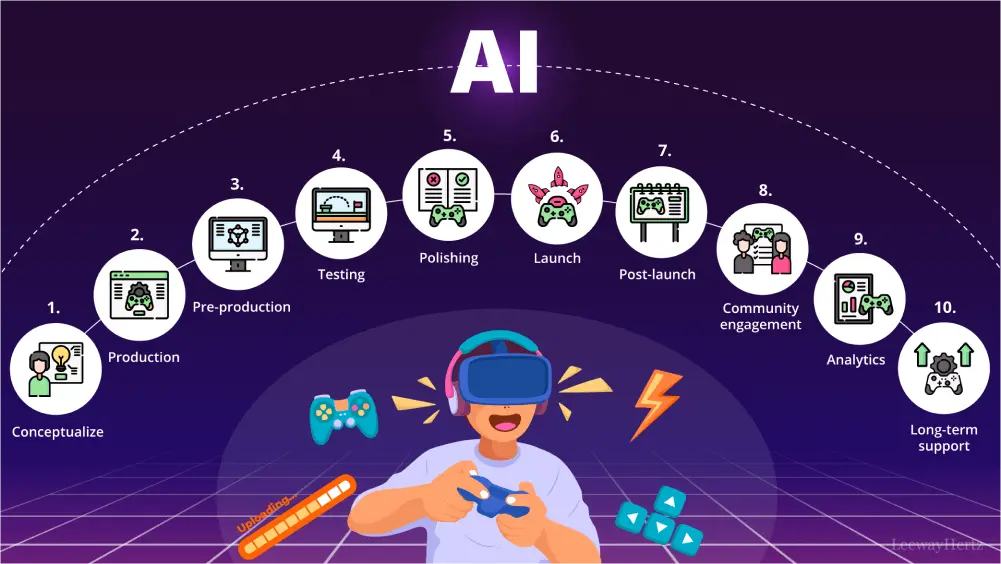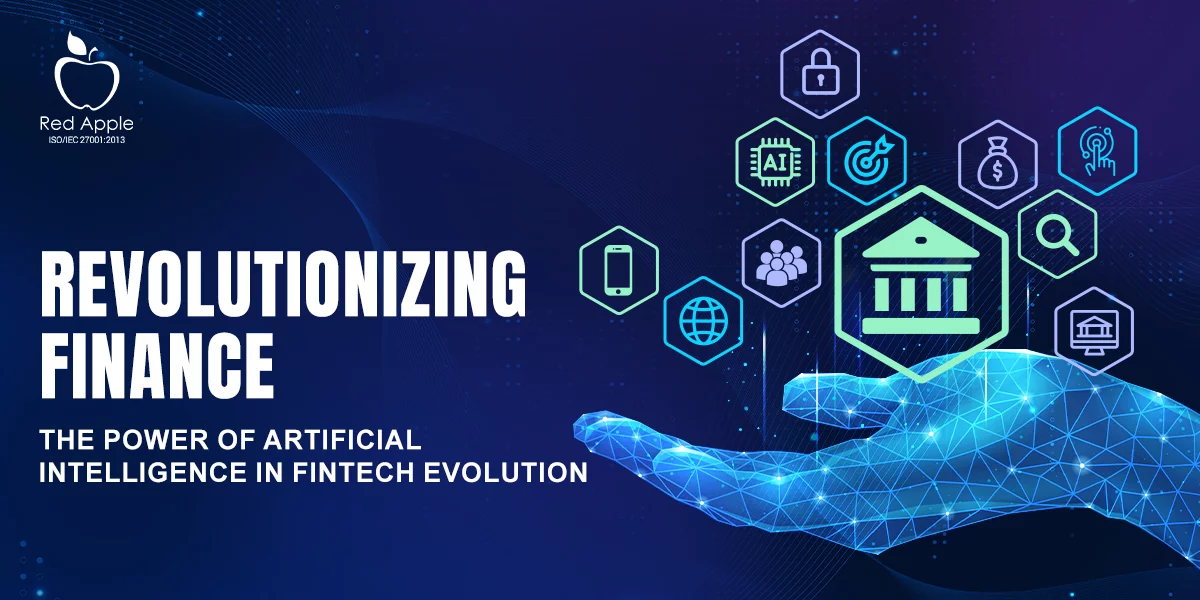Artificial Intelligence (AI) is revolutionizing the entertainment industry, driving innovation, enhancing user experiences, and creating profitable business opportunities. AI’s integration into gaming, streaming, and other entertainment domains has transformed how content is produced, consumed, and monetized. This article explores the multifaceted applications of AI in entertainment, highlighting its impact on profitability and future prospects.
AI in Gaming
The gaming industry has been at the forefront of adopting AI technologies, resulting in more immersive and engaging experiences for players. AI’s influence in gaming spans several key areas:
Contents
1. Intelligent Non-Player Characters (NPCs):
AI algorithms create NPCs that exhibit realistic behaviors, adapting to player actions and making games more challenging. These intelligent NPCs can learn from player interactions, offering a dynamic gaming experience that keeps players engaged.
2. Procedural Content Generation:
AI enables the automatic generation of game content, such as levels, maps, and scenarios. This reduces development time and costs while providing players with unique experiences. AI-driven content generation ensures that no two playthroughs are the same, enhancing replayability and player satisfaction.
3. Player Behavior Analysis:
AI analyzes player behavior to personalize gaming experiences. By understanding individual player preferences and patterns, AI can suggest in-game purchases, tailor difficulty levels, and provide targeted recommendations. This personalized approach increases player retention and boosts in-game revenue.
4. Enhanced Graphics and Animation:
AI-driven tools enhance game graphics and animations, creating visually stunning and lifelike environments. Techniques such as deep learning and neural networks improve textures, lighting, and character movements, elevating the overall quality of the gaming experience.
5. Anti-Cheat Systems:
AI is used to develop robust anti-cheat systems that detect and prevent cheating in online games. Machine learning algorithms analyze player behavior and game data to identify irregularities, ensuring a fair and competitive gaming environment.
6. Virtual Reality (VR) and Augmented Reality (AR):
AI enhances VR and AR experiences by improving object recognition, motion tracking, and interactive environments. AI-driven VR and AR games offer immersive storytelling and interactive gameplay, attracting a broader audience.
AI in Streaming
Streaming platforms are leveraging AI to improve content delivery, user engagement, and monetization. Here’s how AI is transforming the streaming industry:
1. Personalized Recommendations:
AI algorithms analyze users’ viewing history and preferences to recommend personalized content. This increases viewer satisfaction, encourages longer watch times, and enhances user retention. Personalized recommendations are crucial for platforms like Netflix, Amazon Prime, and Disney+.
2. Content Creation and Curation:
AI assists in creating and curating content by analyzing trends, viewer preferences, and social media buzz. AI can generate scripts, edit videos, and even create deepfake actors for specific roles. This helps streaming platforms provide timely and relevant content, attracting more subscribers.
3. Video Quality Optimization:
AI optimizes video quality by adjusting resolution and bitrate based on user bandwidth and device capabilities. AI-driven compression techniques ensure smooth streaming experiences, reducing buffering and improving viewer satisfaction.
4. Targeted Advertising:
AI enables precise targeting of ads based on user data. By analyzing viewer behavior, demographics, and preferences, AI can deliver relevant ads to specific audiences, increasing ad effectiveness and driving higher revenue for streaming platforms.
5. Content Moderation:
AI moderates user-generated content by identifying and removing inappropriate or harmful material. This ensures a safe and positive environment for users, enhancing platform reputation and user trust.
6. Audience Analytics:
AI analyzes audience reactions and feedback from social media, forums, and reviews. These insights help content creators and marketers refine their strategies, improve content quality, and increase audience engagement.
AI Beyond Gaming and Streaming
AI’s influence extends beyond gaming and streaming into various other entertainment domains, offering additional profitable applications:
1. Music and Sound Design:
AI generates music and sound effects, creating unique compositions for films, games, and commercials. AI tools assist composers and sound designers in producing high-quality audio content efficiently. AI-driven platforms like Amper Music and AIVA are revolutionizing music production by enabling creators to compose music with minimal effort.
2. Virtual Influencers and Deepfake Technology:
AI creates virtual influencers and deepfake characters that can interact with audiences on social media and other platforms. These digital personalities are used in marketing campaigns, entertainment content, and brand endorsements, offering innovative ways to engage audiences and drive revenue.
3. Script and Story Generation:
AI helps in scriptwriting and story generation by analyzing successful narratives and generating new plots. AI-driven tools like ScriptBook and OpenAI’s GPT-3 can create compelling storylines, assisting writers in developing content more efficiently.
4. Interactive Storytelling:
AI enhances interactive storytelling experiences by allowing users to influence plot outcomes. AI-driven platforms like Fable Studio and ChooseCo enable creators to develop choose-your-own-adventure stories, providing personalized and engaging narratives.
5. Film Production and Post-Production:
AI streamlines film production and post-production processes by automating tasks such as editing, color grading, and visual effects. AI-driven tools like Adobe’s Sensei and Blackmagic Design’s DaVinci Resolve improve efficiency and reduce production costs.
6. Audience Engagement and Virtual Events:
AI enhances audience engagement in virtual events by providing real-time translations, personalized content, and interactive experiences. AI-driven platforms like Hopin and Microsoft Teams offer features that make virtual events more engaging and accessible.
7. Theme Parks and Attractions:
AI is used in theme parks and attractions to create immersive experiences. AI-driven animatronics, interactive exhibits, and personalized visitor experiences enhance entertainment value and attract more visitors.
8. Sports and Live Events:
AI analyzes live sports data to provide real-time insights, predictions, and personalized viewing experiences. AI-driven platforms like IBM Watson and Stats Perform enhance sports broadcasting by offering detailed analytics and interactive features.
AI is transforming the entertainment industry by enhancing gaming experiences, optimizing streaming services, and offering innovative applications in various entertainment domains. The profitability of AI applications in entertainment lies in their ability to personalize experiences, streamline content creation, and provide valuable insights into audience behavior. As AI technology continues to evolve, its impact on the entertainment industry will only grow, opening up new opportunities for innovation and revenue generation.
The future of entertainment will be shaped by AI-driven innovations, offering more immersive, personalized, and efficient experiences for audiences worldwide. Businesses and entrepreneurs who embrace AI technology and leverage its capabilities will be at the forefront of this transformation, driving profitability and setting new standards in the entertainment industry.


